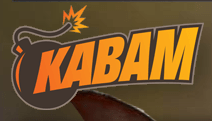With the IPO door seemingly shut to gaming companies, some of the biggest privately held studios in the world have been looking for new ways to reward longtime employees.
San Francisco midcore game developer Kabam, which makes Kingdoms of Camelot, becomes yet another one today. They arranged a secondary offering that let employees sell $38.5 million of their shares at a $700 million valuation. Everyone in the company who had vested shares had the choice to sell, so it wasn’t limited to just the management. Kabam isn’t saying who is funding this offering, except to say that both current investors as well as a few new investors are participating.
Kabam’s most recently disclosed valuation before this offering was roughly $500 million in a May 2011 deal that involved Google Ventures, Intel Capital, Redpoint Ventures and Canaan Partners.
But since Kabam has successfully transitioned onto mobile platforms and away from Facebook with three of the top 25 grossing iPhone titles in the U.S., it’s been able to bump that valuation up a little bit. The company now says it may make about $300 million this year in revenues, up from $180 million last year.
While the company says it’s profitable, it’s still not clear how profitable it is. Kabam said it has more than $50 million in cash in the bank today. But the company also said it had $45 million in cash in the bank back in January, so a roughly $5 million to $10 million increase in cash on the balance sheet over six months is not that much.
CEO Kevin Chou has publicly talked about the company’s IPO prospects in the past. But after Zynga’s disastrous debut with a 75 percent decline in its first year, very few gaming companies seem willing to test the IPO waters. Even though The Wall Street Journal reported last month that King, the maker of Candy Crush Saga, had hired bankers to explore an IPO, sources close to the company have told me King has backed off this prospect for the time being.
What that means is you have a host of companies that are throwing off cash that are tied in their ability to provide returns to early shareholders or reward employees. In this case, a secondary offering might make sense. Finland’s Supercell gave all of its employees the option to sell 16.7 percent of their stakes when they raised $130 million at a $770 million valuation earlier this year.
